Русский Феникс. Между советским прошлым и евразийским будущим - [82]
In order to determine an end date, if it is not just a jubilee aspiration towards convenience — a habit of history writers, who handle linear sections of time easier than multidimensional outlines — it should be related to a factor influencing both the domestic and the foreign policy of Russia, on the one hand, and, on the other, having strong historical momentum during the following periods (historical in the meaning of presence — if it is not depicted by history, it does not exit).
In my opinion, the most meaningful end point for post-Soviet Russia is the polite accession[426] of Crimea on 16 March 2014 because it is not just a symbolic act of actual restoration of the position of a Great Power, lost by Russia in 1991, but an event with a strong resonance in the Russian society in its post-Soviet history. Crimea will be a starting point not only of the end of the post-Soviet area but will also set the beginning of the Eurasian one because it coincides with the integration processes having resulted in the formation of the Eurasian Economic Union of Russia, Kazakhstan and Belarus in January 2015 (later joined by Armenia, likely to be followed by Kyrgyzstan).
In his annual report before the Duma in April 2012, Vladimir Putin said that the end of the post-Soviet period has come[427] (1991–2012). It was rather an end of his premiership and smooth transition to the presidency. However, does the ‘Putin era’, as they call Russia as of 1999, coincide with the post-Soviet era? I would not agree because Putin is a successor and a select of Yeltsin, who set the beginning of the presidential post-Soviet Russian republic in a Soviet style — by shooting at Parliament (1993).
While the process of Eurasian economic integration began in 2000, the geopolitical change in the Russian orbit — from a country ‘defeated in the Cold War’[428] to a Great (although regional) Power — was formally announced by Putin in his Munich speech in 2007. It was not a mere chance that the first direct confrontation between Russia and USA occurred in the next year — during the August war of 2008 (it would be more precise to call it ‘Georgian-Ossetin-Russian’ war and not just ‘Georgian-Russia’ as there were three parties involved).
The second external test for geopolitical turbulence emerged in Russia after Putin’s decision to run for a third term as President in 2012. It occurred again in the following year but this time at the most sensitive place on the Federation’s border, in Ukraine — the Ma-jdan in 2013–2014. Two integration projects clashed on Ukrainian land: the Eurasian one (regional, of Russia) and the trans-Atlantic one (global, of USA). It is to determine the situation in the next century and is a fight for the Old Continent, faced with a choice between a Trans-Atlantic agreement with USA and a ‘Big Europe’, from Vladivostok to Lisbon, with Russia.
While Russia’s Eurasian project is regional (the European Union plus the newly-established Eurasian Economic Union on the principle of multipolarity, in partnership with BRICS, etc.), the Trans-Atlantic project is global (USA plus EU, plus Eurasia, after the fragmentation of Russia, being the wealthiest region in terms of resources and closest to Asia, with faster economic growth than Europe, on the principle of corporate monopolarity). China will stay with the winner in order to outlive it.
The accession of Crimea (March 2014) is a historical fact, which not only separates post-Soviet from Eurasian Russia but also marks the end of the Tong 20>th century’ and the beginning of the 21>st one, when the integration projects will dominate over the national one.
Geopolitical-Eurasian identity of post-Soviet Russia: Big Europe or Big Eurasia?
In his brochure The New World Order (1940), Herbert Wells says that before 1914 his generation imagined that the Franco-German War (1870–1871) and the Russo-Turkish War (1877–1878) were the ‘final conflicts between Great Powers’ and that a ‘balance of power’ had been established[429]. In 1940, at the beginning of WWII, Wells called it ‘the Chamberlain-Hitler war’[430], and the League of Nations, which failed to prevent the conflict, ‘the opiate of liberal thought in the world’.
How did the English fiction writer see the world order: as ‘practical unification’, ‘the end of the period of the sovereign states’, ‘an age of transition’ and a ‘fundamental need of revolutionary reconstruction’[431]. For Wells, the concept of ‘revolution; is not so much romantically idealized but rather perceived as an inevitable change for a ‘profound social revolution, profounder event than the revolution attempted by the Communists in Russia’ (for him, the latter has failed due to ‘impatience, violence […] intellectual insufficiency’); ‘The cosmopolitan revolution to a world collectivism, which is the only alternative to chaos’ with a declaration for human rights[432].
For Herbert Wells, however, ‘collectivism’ is synonymous with ‘globalism’ This is an English-styled globalism. New redistribution of the wealth of the Earth transpire behind the beautiful outlines of a new world order protecting the human rights. This is the consecutive re-colonization that we now witness in the epoch of ‘globalism’. In his book Russia in the Shadows, H.G. Wells shares his personal impressions from the Bolshevik revolution. He points out the reason for the West’s disappointment from the October 1917 events: ‘The collapse of the civilized system in Russia into peasant barbarianism means that Europe will be cut off for many years from the mineral wealth of Russia, and from any supply of raw products from this area, from its corn, flax, and the like. It is an open question whether the Western Powers can get along without these supplies. Their cessation certainly means a general impoverishment of Western Europe.’
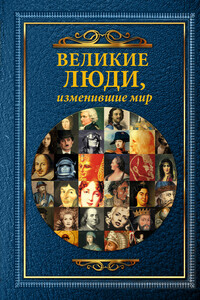
Эта книга о людях, которые изменили мир и оставили свой след навеки!Мужчины, которые вершили историю! Умные, великие, мудрые, сильные и гениальные! Мужчины, сделавшие невероятные научные открытия, благодаря которым мы знаем, как устроен мир!Как часто вы слышите, что женщины по сравнению с мужчинами ничто? Что женщин нет в науке, войне и медицине? Как часто вы встречаетесь с изречениями, что женщинам нет места в политике? Частенько? Но не забывайте: за каждым великим мужчиной стоит великая женщина!Это потрясающая книга, которая окунет вас в мир прекрасного, изысканного и невероятно мудрого!
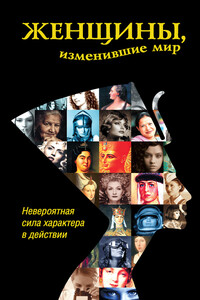
«Женщины, покорившие мир» — прекрасное издание о великих женщинах. Благодаря этой книге вы познакомитесь с самыми знаменитыми женщинами разных веков, проникнитесь их трагичными историями и смелыми решениями. Узнаете о великих женщинах политиках, воительницах, императрицах и ученых, философов и писательниц, о женщинах которые пленяли своей красотой и делали этот мир прекрасней.
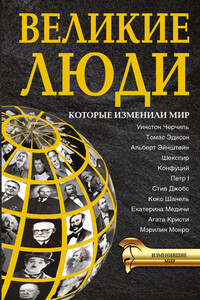
Историю творят великие личности, и эта книга о них. Благодаря могущественным, сильным, гениальным мужчинам и женщинам менялся мир, совершались открытия, разрабатывались новые технологии. Биографии этих людей всегда вызывали интерес, восхищение, удивление и желание понять, в чем же их секрет?Перед вами истории жизни людей, которые изменили наш мир. Петр Великий, Томас Эдисон, Наполеон, Цезарь, Жанна д’Арк, Екатерина Великая, Маргарет Тэтчер, Коко Шанель – это люди-легенды. Их жизнь вроде бы на виду у всех, но у каждого – свой секрет, своя тайна, своя неповторимая судьба.

"Литературная газета" общественно-политический еженедельник Главный редактор "Литературной газеты" Поляков Юрий Михайлович http://www.lgz.ru/.
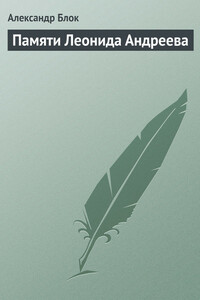
«Почему я собираюсь записать сейчас свои воспоминания о покойном Леониде Николаевиче Андрееве? Есть ли у меня такие воспоминания, которые стоило бы сообщать?Работали ли мы вместе с ним над чем-нибудь? – Никогда. Часто мы встречались? – Нет, очень редко. Были у нас значительные разговоры? – Был один, но этот разговор очень мало касался обоих нас и имел окончание трагикомическое, а пожалуй, и просто водевильное, так что о нем не хочется вспоминать…».
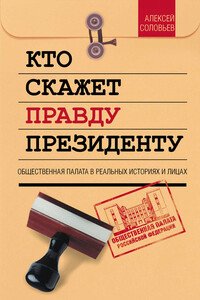
Деятельность «общественников» широко освещается прессой, но о многих фактах, скрытых от глаз широких кругов или оставшихся в тени, рассказывается впервые. Например, за что Леонид Рошаль объявил войну Минздраву или как игорная мафия угрожала Карену Шахназарову и Александру Калягину? Зачем Николай Сванидзе, рискуя жизнью, вел переговоры с разъяренными омоновцами и как российские наблюдатели повлияли на выборы Президента Украины?Новое развитие в книге получили такие громкие дела, как конфликт в Южном Бутове, трагедия рядового Андрея Сычева, движение в защиту алтайского водителя Олега Щербинского и другие.
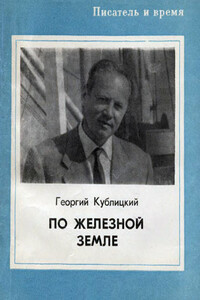
Курская магнитная аномалия — величайший железорудный бассейн планеты. Заинтересованное внимание читателей привлекают и по-своему драматическая история КМА, и бурный размах строительства гигантского промышленного комплекса в сердце Российской Федерации.Писатель Георгий Кублицкий рассказывает о многих сторонах жизни и быта горняцких городов, о гигантских карьерах, где работают машины, рожденные научно-технической революцией, о делах и героях рудного бассейна.
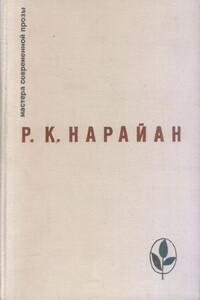
Свободные раздумья на избранную тему, сатирические гротески, лирические зарисовки — эссе Нарайана широко разнообразят каноны жанра. Почти во всех эссе проявляется характерная черта сатирического дарования писателя — остро подмечая несообразности и пороки нашего времени, он умеет легким смещением акцентов и утрировкой доводить их до полного абсурда.